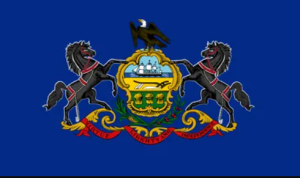“Africa [is] a country…,” said one of the Republican candidates in a serious debate. That pretty much sums a common lack of understanding of this continent comprised of more than 50 states.
Indeed, this continent is one of the most misunderstood regions in this planet.
Sometimes, it seems as if the most interesting fact that many people know about Africa is that it is the birthplace of the human race.
We must learn about the history and culture of this region, not only because we could gain from it but also because it is part of the popular culture of the world.
If we listen to jazz, hip-hop music, and reggae, we are listening to a form of music that traces its roots back to the African continent.
However, the country’s influence does not stop there. Despite being colonized by Spain, France, England, Portugal and so forth, the culture of the people in the Latin American and Caribbean region reflect mostly the culture of the African slaves who were brought there.
The slaves from West Africa brought samba, which is a very popular dance in Brazil. Evidently, it has additional influences, but its main influence remains African.
The merengue, konpa, zouk, socca, kadans and rara, just to name a few, are Caribbean music genres that celebrate the African heritage of people in this region.
That musical culture has spread to the European and Asian continent, and many in those regions have adopted this popular culture.
The African culture did not however only influence us musically. It has a significant footprint on the spiritual life of many people in the American continent.
Although voodoo is always categorized as a Haitian religion, it is also practiced in other countries in the region. It takes on numerous forms but every variety is linked to African traditional religion, notably West Africa.
One of the main ethnic groups dispersed in the American continent through the slave trade is the Yoruba nation. They had their own sophisticated society, and so did the Zulus, one of the state-level societies in Africa. In regards to state-level societies, people generally seem to think of African societies being able to achieve a state-level system only because of the European colonization.
“A lot of people don’t realize that there were state-level societies in Africa,” said Maria Altemara, a Robert Morris University faculty member.
When reading between the lines of some articles written on Africa, and sometimes when listening to the way people will talk about Africa, it seems as if Africans are regarded as brainless human beings incapable of finding means to support themselves and always in need of a handout.
Yet similarly to other societies, Africans were able to develop production means for agricultural and sustainability, and some societies were even able to conquer other groups.
“They did not have weapons as advanced as Europe,” explained Altemara.
It wasn’t necessary at that time. If they had known that threats of invasions from Europe were to come, they probably would have.
Moreover, a great deal of information about the civilization of African groups is still unknown. One of the main reasons for the loss of such information is colonialism. In addition, a group being conquered by another group would lose some of its culture resulting in the disappearance of important information about the civilization of people in this region.
















